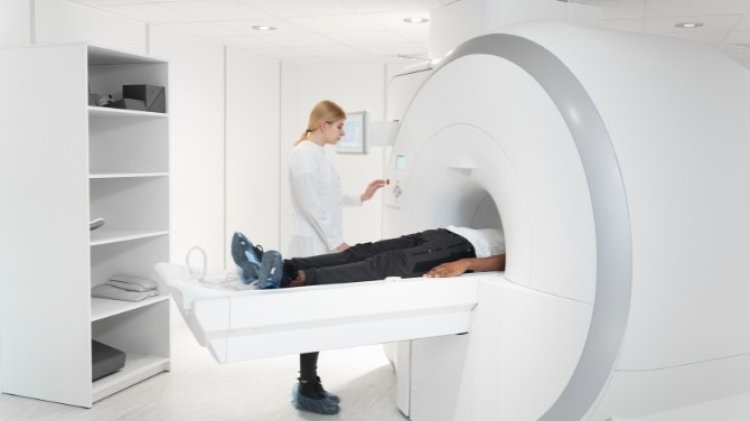Understanding MRI Test Price: A Complete Guide to Cost, Factors, and Savings
This blog explains everything about MRI test price, including factors that affect costs, average pricing in India, and practical tips to save money while ensuring accurate results.

Magnetic Resonance Imaging (MRI) is one of the most advanced diagnostic procedures available today. Doctors recommend it to get detailed images of internal organs, tissues, and bones, which helps in diagnosing a wide range of medical conditions. Whether it’s for the brain, spine, abdomen, or joints, MRI scans provide clarity that other tests may not offer. However, one of the first questions patients ask before undergoing the procedure is about the MRI test price and what influences the overall cost.
In this guide, we’ll break down everything you need to know about MRI scans, pricing factors, average costs, and how you can save money while ensuring accurate results.
What is an MRI Test?
MRI (Magnetic Resonance Imaging) is a painless, non-invasive imaging test that uses strong magnetic fields and radio waves to create detailed images of the body’s internal structures. Unlike X-rays or CT scans, MRI does not use ionizing radiation, making it safer for many patients.
Doctors often recommend MRI scans to:
- Detect brain and spinal cord conditions
- Identify joint injuries or abnormalities
- Evaluate organs such as the liver, kidneys, and heart
- Track progress in treatment plans
- Diagnose tumors, cysts, or infections
Factors That Affect MRI Test Price
The cost of an MRI scan varies widely depending on multiple factors. Understanding these elements will give you a clearer picture of why prices differ between hospitals and diagnostic centers.
1. Type of MRI Scan
Different types of MRI scans are performed depending on the body part being examined. For example, a brain MRI will have a different cost than a knee or abdominal MRI. Additionally, advanced techniques like functional MRI (fMRI) or contrast-enhanced MRI may increase the price.
2. Use of Contrast Dye
In some cases, doctors may require a contrast dye (usually gadolinium) to enhance the visibility of tissues and blood vessels. This additional step can significantly increase the MRI test price compared to a non-contrast MRI.
3. Hospital or Diagnostic Center
The cost also depends on where you choose to get the test done. Large hospitals and specialized diagnostic centers often charge more due to advanced equipment, higher operational costs, and specialist radiologists.
4. Location of the Facility
MRI costs differ from one city to another. Metropolitan cities usually have higher charges compared to smaller towns due to higher infrastructure and service expenses.
5. Insurance Coverage
If you have health insurance, a part or the full cost of the MRI may be covered depending on your policy. Without insurance, you will need to pay out of pocket.
Average MRI Test Price in India
The average MRI test price in India ranges between ₹4,000 and ₹25,000, depending on the factors mentioned above. Here’s a quick breakdown for reference:
These are approximate costs and may vary depending on the hospital or diagnostic center.
Why MRI Tests Are Expensive
Many patients wonder why MRI tests are more expensive than other imaging techniques. The primary reasons include:
- High-cost machines: MRI machines are advanced and costly, often costing several crores to install and maintain.
- Specialist expertise: Radiologists and technicians with specialized training are required to operate the machines and interpret results.
- Time-consuming process: MRI scans take longer than CT scans or X-rays, increasing operational costs.
- Maintenance costs: Regular servicing and upkeep of MRI machines add to the expenses.
How to Save on MRI Test Price
While MRI scans can be costly, there are several ways to manage and reduce expenses without compromising on quality.
1. Compare Prices
Before scheduling your MRI, compare costs across multiple hospitals and diagnostic centers. Many facilities offer transparent pricing online or over the phone.
2. Choose Accredited Diagnostic Centers
Smaller diagnostic centers often charge less than big hospitals while still providing accurate reports. Ensure the center is accredited and has updated MRI technology.
3. Use Health Insurance
If you have insurance coverage, check whether your MRI scan is included. This can significantly reduce your out-of-pocket expenses.
4. Look for Discounts or Packages
Some diagnostic centers provide discounts, membership cards, or seasonal offers on MRI scans. Inquire about such deals in advance.
5. Book Online
Several online healthcare platforms allow you to book MRI scans at discounted prices by partnering with diagnostic centers. This can help you save a considerable amount.
Preparing for an MRI Test
Before undergoing an MRI scan, your doctor will provide specific instructions depending on the type of MRI. Here are some common guidelines:
- Remove metallic items: Jewelry, watches, belts, and other metallic objects must be removed.
- Inform about medical implants: Pacemakers, cochlear implants, or metallic prosthetics may interfere with MRI scans.
- Fasting requirements: For abdominal or contrast MRIs, you may be asked to fast for a few hours.
- Stay still: Movement during the scan can blur images, so you’ll need to remain still throughout the procedure.
Advantages of MRI Over Other Imaging Tests
MRI scans are preferred for their accuracy and detailed imaging. Here are some key benefits:
- Provides high-resolution images of soft tissues
- Detects conditions that X-rays or CT scans may miss
- No exposure to harmful ionizing radiation
- Useful in the early diagnosis of neurological and musculoskeletal conditions
Conclusion
MRI scans play a vital role in modern medical diagnosis by providing clear and detailed images of internal body structures. However, the MRI test price can vary significantly depending on factors such as the type of scan, use of contrast, hospital location, and insurance coverage. By comparing options, using health insurance, and exploring discounts, patients can reduce expenses while ensuring quality healthcare. Understanding the cost breakdown helps patients make informed decisions and access the right diagnostic care at an affordable price.


 Cityxray
Cityxray 



















